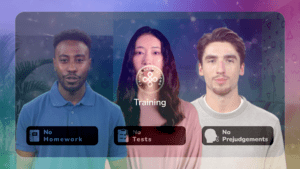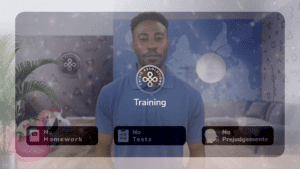Episode 7 Narrative
Episode 7 explores our Empirical Good Ways and how they relate to the practice of science.
Science is a method of empirical inquiry that can help us achieve freedom, diversity, inclusion, fitness, and wellbeing.
Through cooperation and the investigation of science, we can develop a deeper understanding of the world around us and make more informed decisions, ultimately leading to personal growth and fulfilling lives.
Additionally, by passing on the methods and practices of good crisis resolution to future generations, we can help them better understand and address crises as they arise.
Good Ways of Science Genesis
Science is a method of empirical inquiry that helps us maintain flexibility of freedom, diversity, inclusion, fitness, partying, and wellbeing. By analyzing input feedback, indexing evaluation, output feedback, modeling classification, and memory allocation, we can sustain economic liberty, ecophysiological equality, ecological solidarity, ecospheric peace, ecotypic order, and ecosystemic governance. Then, through cooperation in matters of accessibility levels empowerment, topics support, recipes composition, journals documentation, challenges adaptation, and rituals coexistence we can refine our capability for self-reflection genesis, sentience practice, self-autonomy mimesis, simplicity growth, symmetry investigation, and variety inheritance.
For individual practices, one example is the process of self-reflection, which can help us better understand our thoughts, feelings, and behaviors. Another is the practice of empathy, which helps us understand and connect with others on a deeper level.
For family practices, one example is the modeling of self-autonomy, which encourages family members to make decisions for themselves and take responsibility for their actions. This can lead to a stronger sense of independence and self-confidence.
In professional settings, the practice of sentience can be beneficial. This means being aware of and responsive to one’s own feelings and the feelings of others. It can lead to better communication and collaboration within a team.
Finally, for social practices, exploring symmetry can be helpful. This involves investigating patterns and relationships in the world around us, and can lead to a deeper understanding of how things work and how we can create more balance and harmony in the world.
By incorporating these practices into our daily lives, we can develop a better understanding of ourselves and others, and be better equipped to handle crises when they arise.
Good Times of Science Practice
The practice of science can lead to good times such as intellectual discovery, personal growth, and the development of new technologies that benefit society.
Good Life of Science Mimesis
The mimesis of science can contribute to a good life by promoting self-autonomy, sentience, and self-reflection. By developing a deeper understanding of the world around us, we can make more informed decisions and live more fulfilling lives.
The inheritance of science includes the transfer of knowledge, skills, and abilities from one generation to the next. By passing on the methods and practices of good crisis resolution, we can help future generations to better understand and address crises as they arise.




